It was the early 1980s. I was active in the local animal rights group in Kansas City, mostly comprised of women my mother’s age. One of these, Hazel, was fond of saying that her participation was not because she loved animals but because she hated cruelty. That sounded so strange to me, because I love animals. Always have. All of them. Their appeal is boundless. Stories of animal valor and intelligence never cease to intrigue me. No species is beyond cuteness. And if you walk past me with your baby in a carriage and your dog on a leash, I’ll gush over the dog. It’s not that the baby isn’t really great; it’s just that my eyes, and my heart, are drawn to your firstborn, the one with four legs who’s having to adjust to being a sibling. (“And please, God,” I’m praying as I learned to do in childhood, “May this being be seen as an elder sibling and not, heaven forbid, ‘just the dog'”).
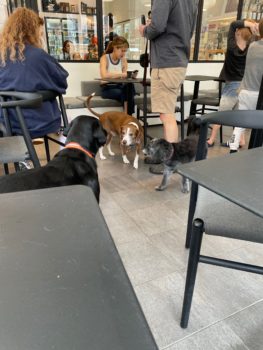
However, the older I get and the longer I spend in the world of animal rights and Veganism, I find myself becoming more like Hazel. I hate cruelty. I hate it with everything that’s in me. I detest cruelty to animals mostly because, well, I love them, and they’re so innocent, but I also abhor cruelty to humans, cruelty to rivers and rainforests, even. It feels personal, almost as if it’s being done to me. Maybe I’m just getting sensitive in my dotage, or I’ve been sufficiently indoctrinated with yoga philosophy to take “We’re all one” seriously, literally, viscerally. I just know that I have more passion these days for ending the cruelty than indulging the love. Sure, it would be cool to see the mountain gorillas in Rwanda, or the blue-footed boobies in the Galapagos. And since our dog, Forbes, passed away last month, I want another dog more even than tight triceps or Vegan collagen that really works. But if not having a dog meant ending some of the cruelty, I’d live without a dog. I’d live without a roof.
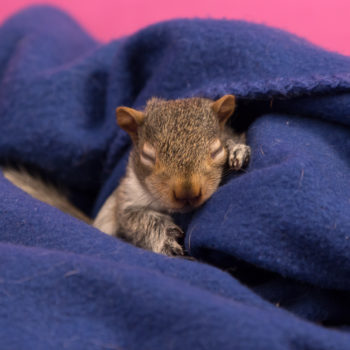
This emphasis feels right, but it can impede my effectiveness. When I’m asked about Veganism by someone who has never given animals much thought, a person who doesn’t live with a dog or cat or keep an eye out for orphaned wildlife, I am patient and understanding. I’m frankly a bit in awe that they’ve broached the subject and I want to go easy on them. But when someone “loves animals” but eats them — and in some cases is fine with New York City carriage rides or taking the grandkids to SeaWorld — I have to work on the patient-and-understanding piece. I’m tempted to say, “Wake up, for heaven’s sake! Can’t you see you’re being a hypocrite?”
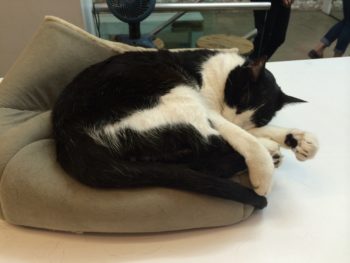
I don’t say that, of course, but my approach with animal lovers is tougher than it is with civilians. I feel the former ought to “know better,” the way some teachers I remember put more pressure on the kids deemed to have a lot of potential. A more effective way to see it would probably be, “This person has an open heart. They’re doing good. They’re sharing love. They just have a ways to go, as do we all.” Better, definitely. But not easy. Sometimes these techniques help:
- Taking the person to a farmed animal sanctuary. Since they already “love animals,” getting the Vegan message in the presence of the relevant animals is powerful. It doesn’t always guarantee a home run, but if I were a betting person, this is the strategy I’d put money on.
- Treating every animal lover as if they’re already Vegan, even if they insist that they aren’t. Ways to do this are to gift them with Vegan treats and snacks, take them to Vegan restaurants, tag them on suitable social media posts, invite them to Vegan/animal rights events.
- Supporting their efforts for animals, whether they’re fostering homeless pets or volunteering at the Wild Bird Fund. Sometimes animal people who haven’t yet opened up to Veganism find us elitist. It seems that we overlook their work and their efforts. If we can help out in some way, it carries weight.
- Sharing my animal-loving proclivities. This puts us on the same side. It establishes camaraderie.
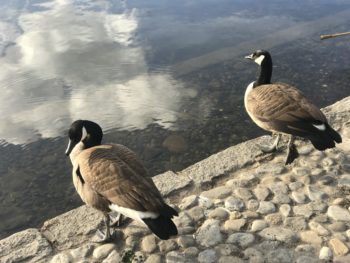
And when I’m talking with that civilian, the person who doesn’t think very much about non-human animals but is curious about Veganism, I downplay my personal enthusiasm for the furred, the feathered, and the fishes. If I sense that health or environment is a better hook with a certain individual than is ethical Veganism, I go with that. All the while, of course, I’m holding the belief that the animal who is not eaten is the most direct beneficiary of anyone’s choosing a Vegan meal or, ideally, a Vegan life.
Here are some of the tactics I use:
- Bringing up my favorite quotation, one that comes from the Jain saint, Mahavira: “To every creature, their own life is very dear.” That sums it up. Some human — or most humans — may consider a particular creature’s life fully lacking in value; but to that creature, it’s a whole different — I can’t help myself here — animal.
- Taking a page from the playbook of Dr. Sailesh Rao, the systems engineer turned climate activist asks people, “Would you ever harm an animal unecessarily?” Unless you’re talking to a psychopath,
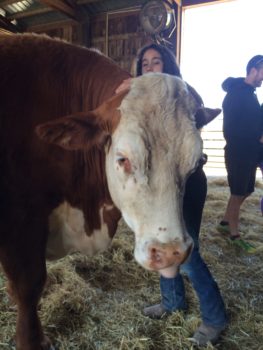
Cow at Farm Sanctuary, Watkins Glen, NY the answer is going to be “Of course not.” This establishes that the person in question has a Vegan soul. There’s just an education gap.
- Asking them questions. ‘How did you like the Vegan sushi place? … How did your kids react to the Vegan burritos? … Do you have enough recipes for next week?’
- Answering the questions they ask, not the ones I want them to ask. Example: “How have you kept weight off for so long?” Oh my gosh, the key word there is long. I’ve talked about that for 38 years and written two-and-a-third books on the subject. I’d rather talk about something current. I’d rather talk about the animals. But talking about what the other person wants to talk about could actually change things for some animals.
At the end of the day, most people identify as animal lovers. A 2021 Vox.com survey found that 75% of responsdents put themselves in this category, although only 6% followed a Vegan or vegetarian diet. The gap is disheartening, sure, but 75% of people have the foundational belief about themselves that can prompt ethical Veganism, ending the cruelty we despise. And our shared love of dogs, cats, horses, or birds can start a conversation.
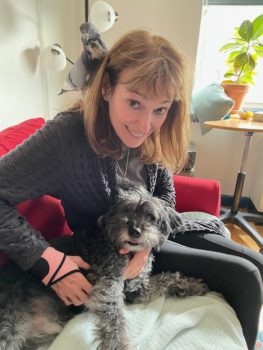
Victoria Moran is the host of the new Victoria Moran Podcast: Meetings With Remarkable Women. Her guest September 8, 2022, will be Rev. Sarah Bowen, and they’ll discuss many of these topics. Victoria is also founder and director of Main Street Vegan Academy, training and certifying Vegan Lifestyle Coaches and Educators for the past ten years. A new class begins October 1st. Check out the program here.

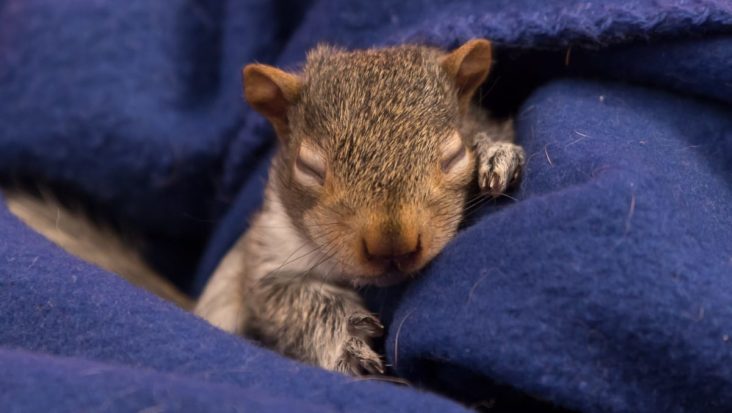
THANK YOU, VICTORIA, FOR THE HELPFUL EDITORIAL & TERRIFIC PHOTO OF YOU W/ FORBES & THUNDER. BLESSINGS, ROBERTA IN SOFL
How kind of you to comment, Roberta! — Thanks so much and I hope you’re doing well.
Wonderful advice.
Recently, a backyard dog breeder abandoned five puppies on a nearby dirt road and they became lost in a swamp in a 27K acre state forest. A local woman organized a puppy hunt that few missing people will get. More than 50 volunteers came out to search every day and waded through chest-high water with grass that will cut you, someone brought in a heat-sensing drone, and everyone was rooting for the puppies to be found safe. 4 of the 5 puppies were recovered, thanks to these great efforts. One puppy had gotten into the road, sadly, and been hit by a car. But all 5 had been accounted for one way or another.
The woman who organized the search celebrated with a burger BBQ. She absolutely believes she’s an animal savior. I’m trying to think of her as a future vegan.
Lisa: What a poignant story! It so clearly illustrates cognitive dissonance. It’s wonderful that people like your neighbor are out there doing what they’re doing, and so difficult to understand why “meat” doesn’t equal “animal” to them. Thank you for sharing this story, and for writing it so beautifully.
A complex question, for which you have provided many convincing answers. One possible answer you seem to have omitted, however, is humor, and a specific form of humor called satire. Every one loves dogs, right? This is perhaps a sensitive issue in light of the recent death of your beloved family member, Forbes, but one satirical website rife with gallows humor or black humor or both comes to my mind as a gentle if subversive way to proselytize against cruelty. You can find it by searching the web for: “ELWOOD’S ORGANIC DOG MEAT.”
Victoria,
The problem with carnivorous pets is that you are killing one animal to subsidize another. My wife had a dog and it seemed to do well on a diet of beans and lentils. I know of a book called “Vegetarian Dogs and Cats,” but I have not read it.
I prefer vegetarian pets. That solves the problem.
Of course, slaughtering animals for human food is both immoral and barbaric. But the human mind can be conditioned to accept any atrocity. Nazi Germany is a good example. Tragic that we have all been brought up wrong. Animal agriculture is destroying this planet. Today I was happy to learn about a high school group called Action for the Climate Emergency, (acespace.org). Please do everything you can to support them. They are our best hope for the future.
I became a vegan to lose weight and get healthy, then I realized being a vegan is more than just about me, the animals and the planet need our protection.